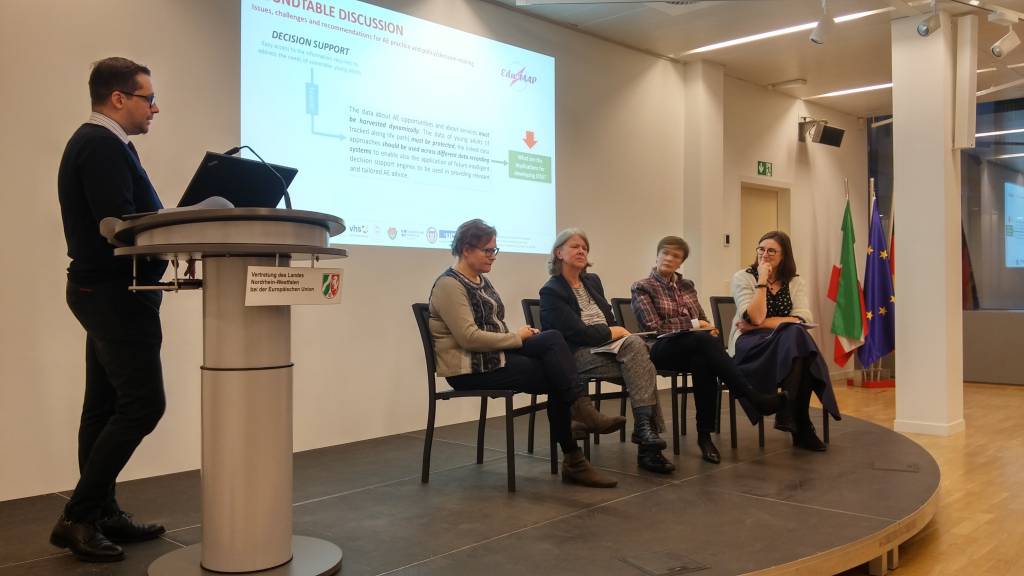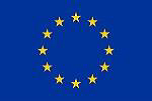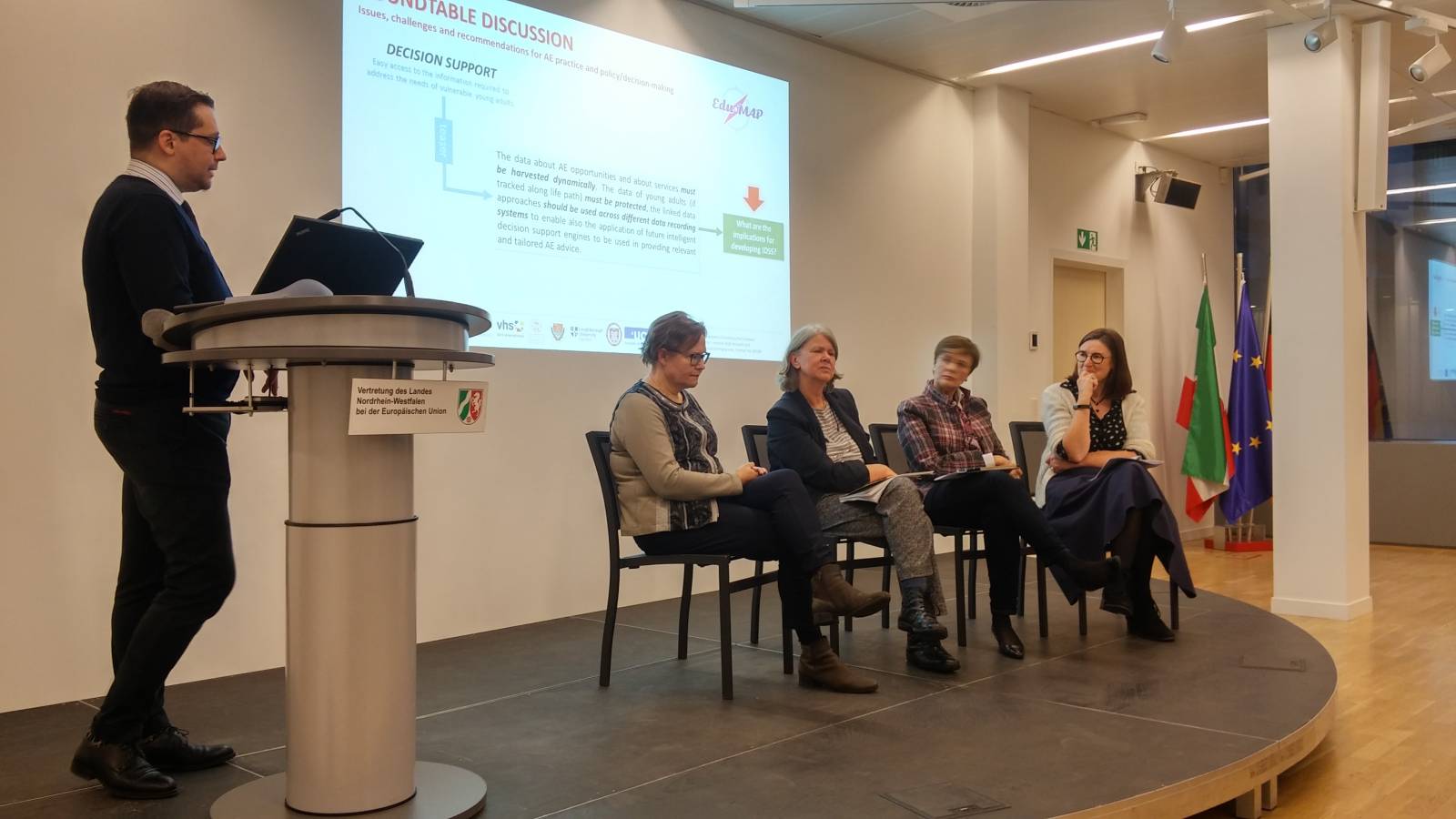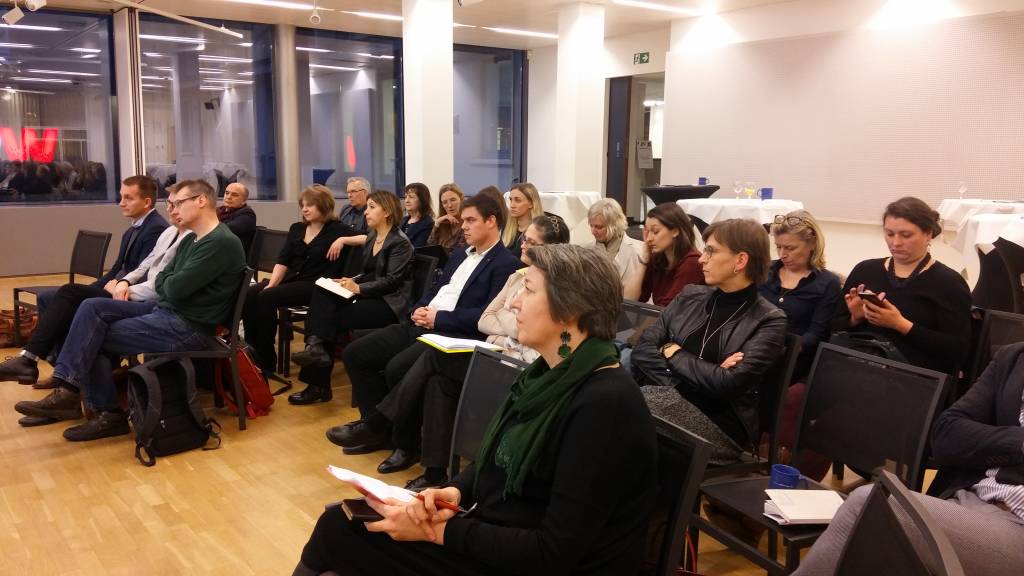The Final Conference of the EduMAP project gathered the consortium members, cooperating partners, invited discussants and EU and NGO representatives in Brussels 17 January 2019. Programme of the event and information about discussants here.
In her opening words, DG EMPL representative Ms. Martina Ní Cheallaigh gave credit to EduMAP for its cross-cutting approach, which brings together various issues concerning young people in vulnerable situations with adult education. The adult learning sector is anticipated to only grow more in importance as education needs to continue through the lifespan. Ms. Ní Cheallaigh mentioned the on-going negotiations within the EU that are aiming at increasing support through funding mechanisms and pointed out the challenges of cross-sectoral interaction needed to find opportunities and fully implement the planned policy actions. As an example, she mentioned that the Erasmus+ Key Action 3 (Ministry led action to support policy-making) is not much used in the field of adult education. In addition, the Youth Guarantee programme’s suggestion to offer guidance in all aspects of life, not only in education, are valuable in other sectors as well.
Conference presentations summarised EduMAP’s findings and outcomes: the broad research of adult education practices and policies in Europe (WP2), the research of good practices in different EU member states and Turkey (WP3), the mapping of communicative ecologies in the field of adult education (WP4) and the design of the decision support system IDSS (WP5). The presentations provided the backdrop for the themes that a roundtable of discussants were asked to reflect on in dialogue with the audience.
[Scroll down to view the presentations]
Professor Karen Evans (UCL) reported from a UK workshop and passed on a comment from a student union member who pointed out that young people need training to become activists for their needs and rights. Professor Evans raised the question whether adult education can provide a platform for them.
Ms. Astrid Thors, the former High Commissioner of National Minorities (OSCE) and Minister of Migration in Finland reminded the audience of the crucial role of civil society and NGOs in the history of adult education. Adult education has served as a channel for expressing concerns and anticipating change that have grown from the grassroots, and provided forums for people to gather around important issues. Today we once again need to provide platforms for young people to develop their autonomy and prospects in life. Adult education has historical roots in promoting advocacy and connecting people within learning communities and programmes.
Professor Marianne Teräs from Stockholm University raised the issue around control: who has the power to define who are vulnerable and for how long? She thus reminded us of the relativity of vulnerability and the importance of temporality. She thus touched upon an important issue that is connected to one of the core elements of EduMAP’s innovative work: finding suitable data for assessing adult education outcomes, especially that of becoming an active participatory citizen. With time consistent participant data we would be able to harness artificial intelligence (AI) applications (such as intelligent decision support systems, IDSS) to support evidence-based policymaking.

Presentations in chronological order and according to work package number:
https://www.slideshare.net/JaakkoHyyti/adult-education-policies-and-practices-in-eu-member-states-and-turkey-the-relevance-to-young-adults-at-risk-of-social-exclusion-wp2
https://www.slideshare.net/JaakkoHyyti/targeted-research-on-best-practices-among-vulnerable-groups-wp3
https://www.slideshare.net/JaakkoHyyti/communicative-ecologies-in-adult-education-wp4-task-41
https://www.slideshare.net/JaakkoHyyti/results-from-edumap-wp4-task42
https://www.slideshare.net/JaakkoHyyti/intelligent-decision-support-system-idss-wp5
Text by Paula Kuusipalo, pictures by Hanna Toiviainen




[…] the 17th of January, I attended the EDUMAP final conference in Brussels representing the Lifelong Learning Platform (LLLP), which is a European network of […]
How access and collection of data, resource management and related competences can provide insights to improve the quality and efficiency of adult education provisions to vulnerable groups | EduMAP
20.2.2019 10:18